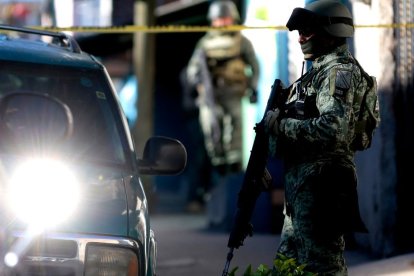Mexican cartels have taken control of even the tortilla industry
Criminal groups have diversified the way they obtain resources. They no longer only receive money from the drug business, now they extort more than before. In addition, they have increased their influence in politics.

(AFP)
Mexican drug cartels now also control the tortilla industry. Criminal groups have also increased their political influence by extorting money from various locally owned companies, including tortilla factories. According to the National Tortilla Council, they currently threaten at least 15% of the tortilla factories in the country.
"We’re practically at the point where criminals set the price of tortillas," said Homero López, president of the council in statements reported by The Washington Post.
And the cartels are also playing an increasing role in the economy of the countries in the region. The Washington Post report explained that the criminals' activities range from infiltrating seaports to extorting small businesses. It's not just tortilla producers, in Mexico, they are extorting fishermen, chicken sellers, builders, transportation companies, gas stations and a host of other businesses.
For example, around 70% of wood production in that country is illicit. This was told to the media by the Ministry of the Environment. Meanwhile, it is estimated that 30% of the fuel sold in Mexican territory is stolen or smuggled, and one in five cigarettes comes from the black market.
As The Washington Post explains, "Mexico’s cartels began to diversify into extortion, migrant smuggling and other illicit businesses more than a decade ago, as they splintered into smaller groups under pressure from security forces. Newer gangs needed fresh sources of income."
In fact, criminals have managed to become part of local governments to increase their power. Mexico's last election cycle was the most violent in its modern history. At least 70 people were killed in cases related to electoral violence. Of these, more than 33 were aspiring candidates, according to the latest report from the organization Laboratorio Electoral.
Likewise, Laboratorio Electoral explained that political parties reported more than 50 cases of threats to potential candidates.
"Political violence and widespread violence in Mexico have seen serious increases in recent years. National organizations such as Data Cívica have also initiated monitoring processes to understand how the increase in violence has been having strong impacts on the democratic life of the country," said the non-governmental organization.
RECOMMENDATION





















